Common Issues
Spotting Common Home Issues: A Simple Guide

By Admin
•
24 Oct, 2023
InterNACHI Membership There are no federal laws governing home inspectors. We are regulated only by the individual states. Since the laws vary from state to state – and some states don’t even have home inspection regulations – how can you be sure that your inspector is qualified, experienced, and trustworthy? One way is through home inspector associations. Some of them require minimum training, education, experience, and ethical standards – be sure to check out the individual associations to determine their requirements. As a member of the International Association of Certified Home Inspectors, Inc. (InterNACHI), you can be assured that I am qualified and adhere to the association’s standards of practice and code of ethics. You can find more information about InterNACHI at their website, www.nachi.org. You can also view the online brochure on why you should choose a InterNACHI Certified Master Inspector.
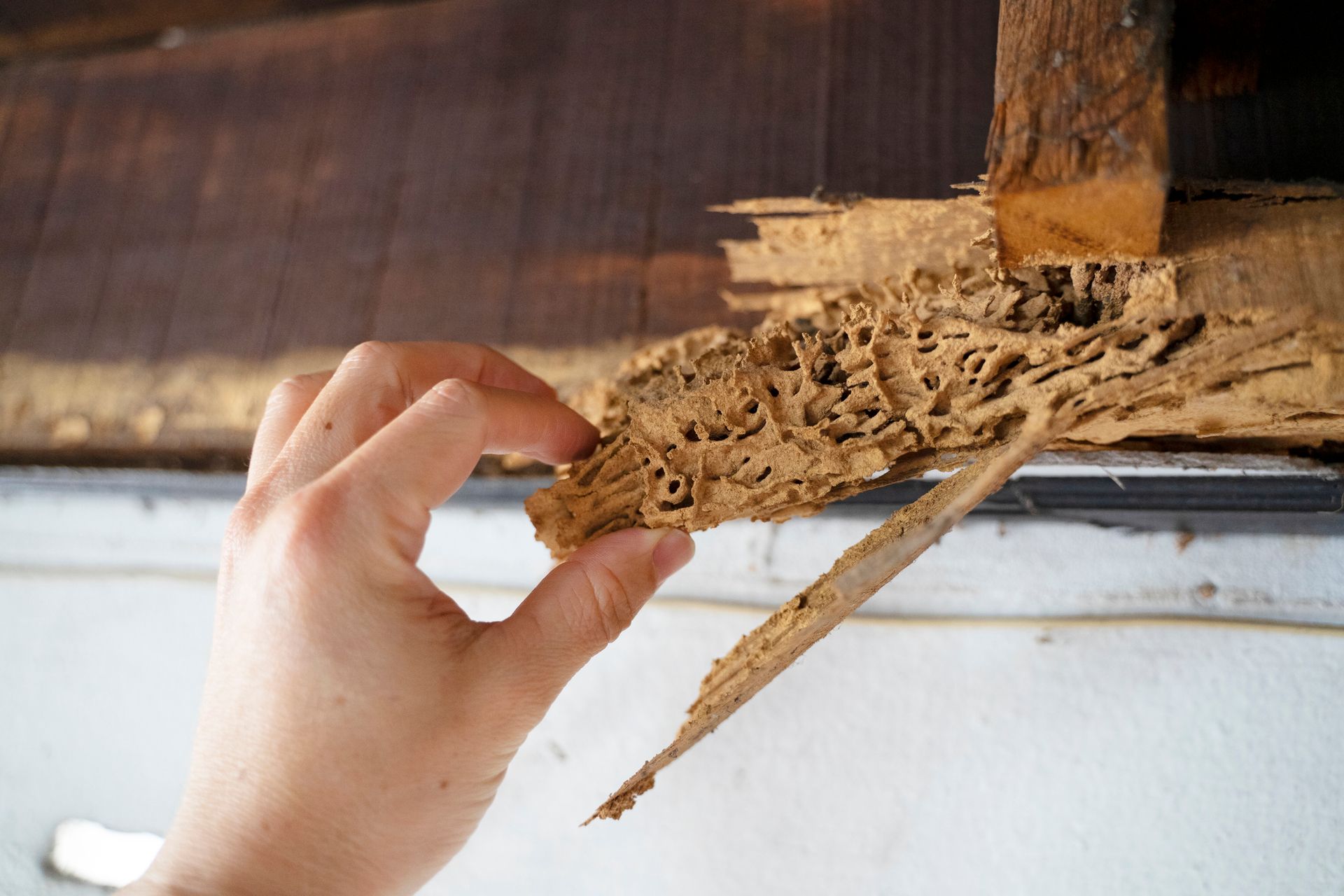
By Admin
•
24 Oct, 2023
Termites and Other Pests Termites and other wood-destroying insects, such as carpenter ants, can significantly damage a home and greatly impact its value. In our humid area where termites are a problem, it’s not unusual to find wood-destroying insect activity and/or damage in homes that maintain termite contracts with a reputable licensed exterminator. How do I prevent termite infestation? You can take many steps toward preventing infestation if you know what termites look for and take steps to make your home less attractive to them. Termites are ground insects that look for habitats that provide food, moisture, and shelter close to the ground. Where wood meets ground qualifies, especially if the soil stays moist. Correcting this situation may require re-grading to separate soil from any wood around your home. Since mulch and many other landscaping materials cause the ground to remain moist, you should minimize mulching around your foundation. Some experts recommend mulching no closer than a foot from your home’s foundation. You should also stack your firewood away from your home, preferably by several feet. Trimming back all vegetation that contacts the building is also a good idea. Ensure that gutters and downspouts are in good condition and keep moisture from accumulating around the house perimeter. You should eliminate moisture problems in and around your home, especially crawlspaces. You can also hire professional termite exterminators to apply chemical treatments that protect your home. Be sure to find out how long the treatments last. The chemicals on the market today generally protect your home for up to 5 years. We recommend that all homes in our area maintain a termite contract with a reputable, licensed exterminator. How do I know if my home has termites? It takes an expert to detect hidden termite damage. Home inspections do not include a termite inspection, although any visible damage we observe will be reported. It is highly recommended that you get a termite inspection by a licensed exterminator in addition to your home inspection.
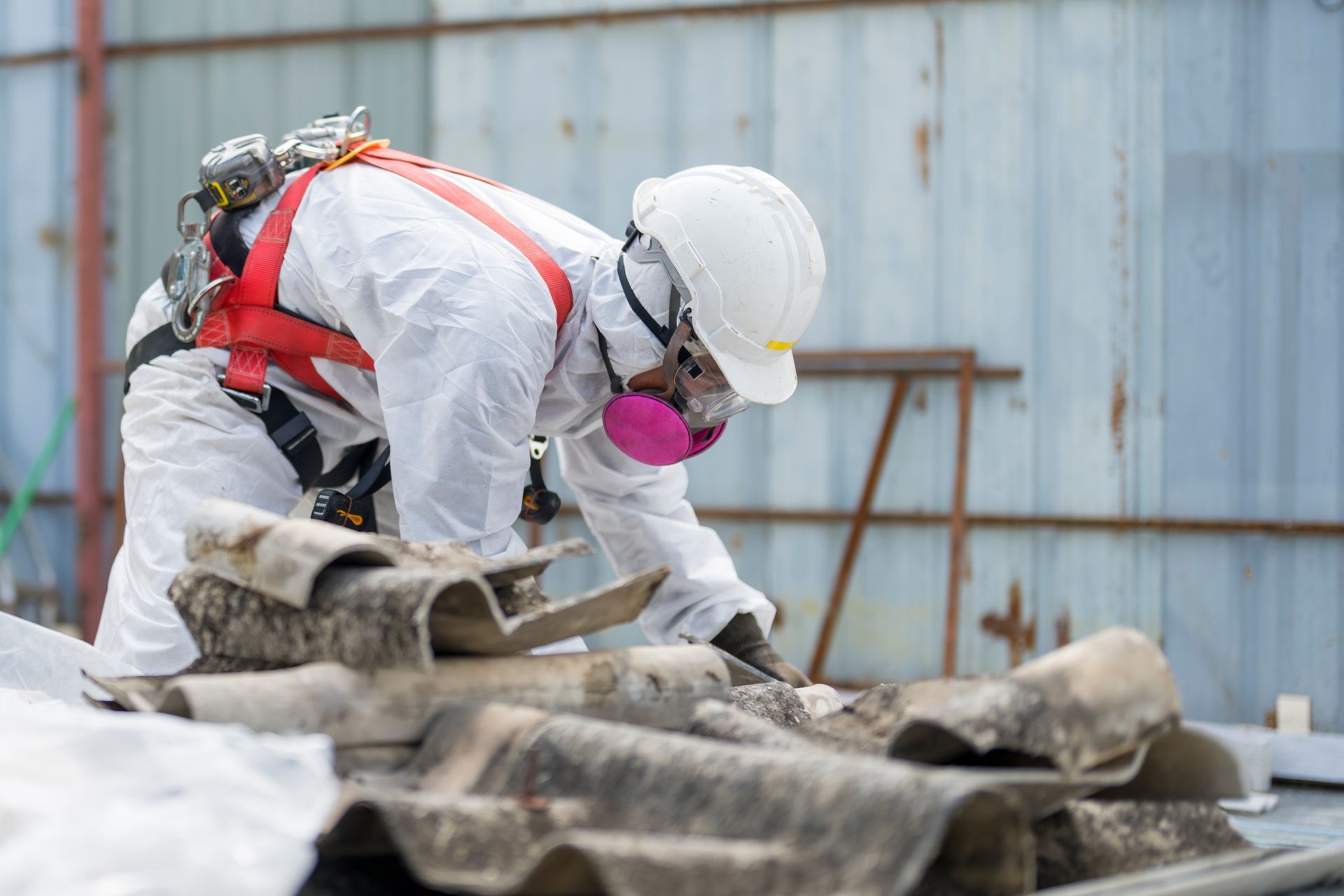
By Admin
•
24 Oct, 2023
Asbestos Information Asbestos is a tiny fiber that was used in the past primarily as insulation. It was also added to some building materials for strength and flame resistance. The problem with asbestos is that it has been shown to cause lung cancer and mesothelioma in individuals exposed to large amounts of free-floating asbestos fibers in the air. These conditions typically became apparent around 30 years after the exposure. Because of the health hazards of asbestos fibers, its use in insulation and paint was banned in the 1970’s. What you need to know about asbestos Homes built before the 1970s could contain asbestos in insulation, plumbing, paint, wall joint compound, and other building materials. However, as long as the materials are in good condition, they pose no danger. Asbestos is only a threat if the fibers are released into the air and can be inhaled. Renovations or demolitions of asbestos materials can release the fibers into the air. Therefore, the National Emissions Standards for Hazardous Air Pollutants (NESHAP) requires the owner of any property containing asbestos building materials to get an asbestos inspection before any demolitions or renovations. How can asbestos be removed? If your home contains asbestos, you have two options: removal of the material or sealing the material to prevent it from releasing fibers. Either option should be performed with the help of a trained professional. How do I know if my home contains asbestos? If you suspect your home or a home you are considering buying may contain asbestos, you must get a thorough inspection by a qualified professional. Asbestos can only be detected by a special microscope. Our inspectors are trained in asbestos detection and will take samples from your home for a complete laboratory analysis. Please contact our office for further information.
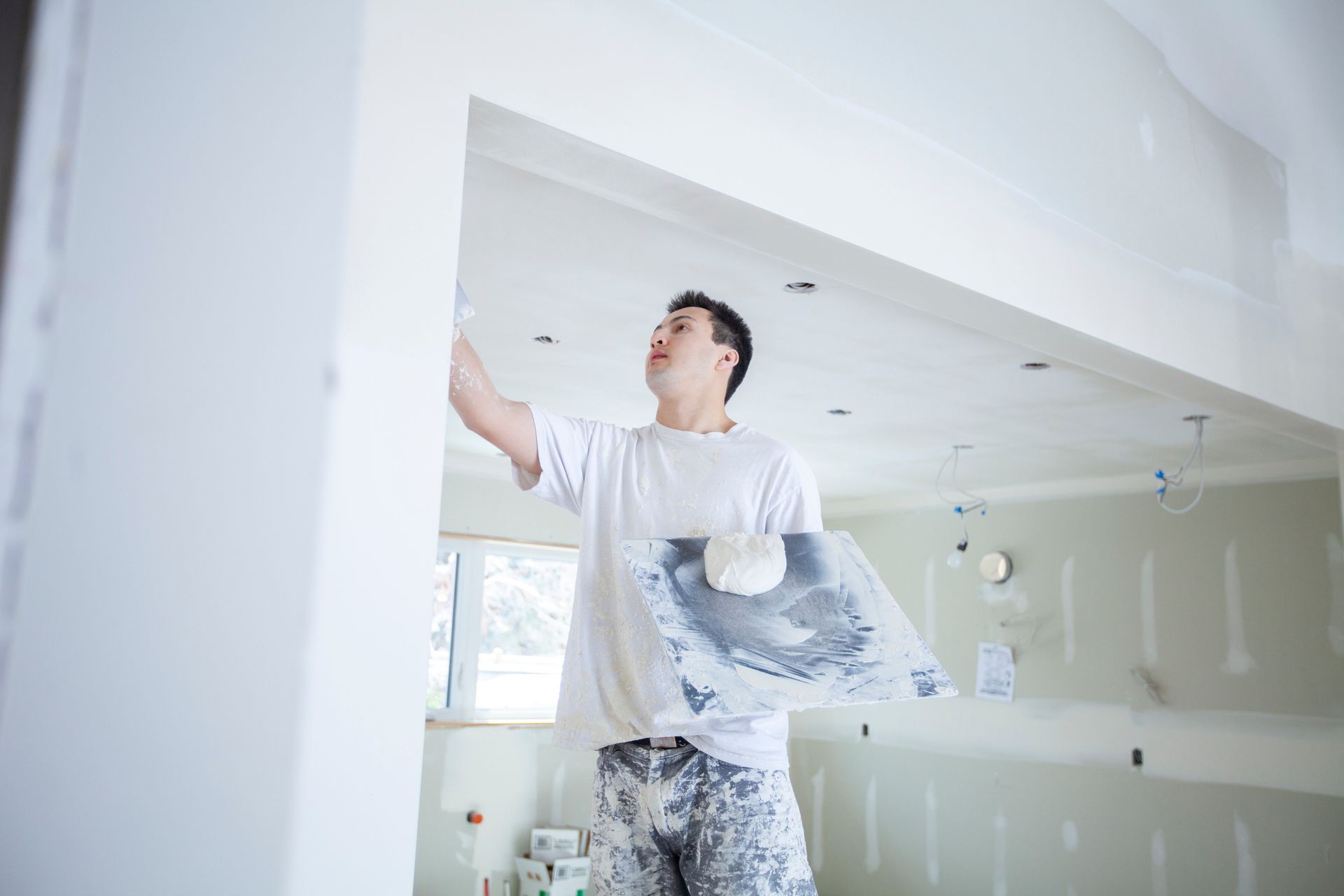
By Admin
•
24 Oct, 2023
The U.S. Consumer Product Safety Commission (CPSC) reports that complaints involving problems with Chinese drywall have been received from 21 states and Washington, D.C. The defective drywall is also being investigated as a possible fire hazard due to its corrosive effects on wiring and household appliances. The CPSC sent a letter to several U.S. Senators on July 7 with a status report about the Chinese drywall issues plaguing homeowners throughout the United States. The report disclosed that material from the drywall likely comes from the Shandong province in China. CPSC officials are getting approval from the Chinese government to conduct a fact-finding tour of those mines. At least 608 incident reports of problems with the drywall from China have been received by the CPSC, with the majority of reports coming from Florida, Louisiana, and Virginia. The walls in the buildings, a recently filed class-action lawsuit alleges, were built with the same kind of Chinese-made drywall that tests have shown emit sulfur gases that corrode copper coils and electrical and plumbing components. Could you have Chinese drywall? The drywall was used primarily in multi-family dwellings and single-family homes from 2004 through 2006 because there was a high demand for building materials after severe hurricane damage to the Gulf South, and it was available and cost-effective. Does your home have a strong smell (a sulfur or rotten egg-type smell)? Do you have corroded copper coils in your air conditioner, or are the coils black? Do you have KNAUF written on the back of your drywall? Go to your attic and look at the back of the drywall for Knauf. This is the primary manufacturer's I.D., which could identify it as the drywall. Sulfur Dioxide Respiratory Effects from Gaseous SO2: Peak levels of SO2 in the air can cause temporary breathing difficulty for people with asthma who are active outdoors. Longer-term exposures to high levels of SO2 gas and particles cause respiratory illness and aggravate existing heart disease. Respiratory Effects from Sulfate Particles: SO2 reacts with other chemicals in the air to form tiny sulfate particles. When these are breathed, they gather in the lungs. They are associated with increased respiratory symptoms and disease, difficulty breathing, and premature death. Short-term Peak Levels High levels of SO2 emitted over a short period, such as a day, can be particularly problematic for people with asthma. EPA encourages communities to learn about the types of industries and to work with local industrial facilities to address pollution control equipment failures or process upsets that could result in peak levels of SO2. Frequently Asked Questions: Please consider the following answers are based on the best available information and are subject to periodical review and revision as the Department of Health (DOH) continues to research the issues. Please check back often to review additional questions/answers and revisions. Does this phenomenon pose a health hazard to me, my children, or my pets? This is undetermined at this time. DOH has not identified data suggesting an imminent or chronic health hazard. DOH will continue to review all available data to help determine a more definitive answer to this question. Will the Health Department sample and test my home for corrosive gasses or for the presence of Chinese drywall? DOH does not have the necessary resources to visit homes and collect air or material samples for analysis. DOH visited 12 homes in late January 2009 and collected representative drywall samples during the visits. Samples are currently being analyzed for content. The laboratory analysis should be transmitted to DOH in March of 2009. How do I know if I have "Chinese drywall"? Unfortunately, there is no easy answer to this question. The most definitive method to date is finding a "made in China" marking on the back of a sheet of drywall. DOH observed some drywall in several homes with no discernable markings. The origin of the unmarked drywall is unknown. DOH observed that homes with marked Chinese drywall also contained drywall marked as made in the USA. Remember that we do not know how many sheets of the suspect drywall can cause problems. DOH observed at least one home with marked Chinese drywall with no associated corrosion or odor problems. We think the question should be, "Does my house have corrosion problems?" (see case definition). Who can help evaluate my home for this issue? Environmental consultants, drywall contractors, your builder, electrical engineers, heating, ventilation, and air-conditioning engineers, industrial hygienists, building scientists, to name a few. Be advised that each group will bring their own specialized expertise and experience. Who can repair, remediate, or fix my home? There are no set criteria for persons performing a remediation of problematic drywall or affected building materials. DOH advises the public to hire Florida-licensed contractor(s) to complete the remediation. For example, use a licensed electrician to replace corroded electrical systems, an A.C. contractor to replace or repair an air conditioner, a drywall contractor to install drywall, or a licensed general contractor to oversee the demolition and coordination of subcontractors. Is there a known treatment to deal with suspect drywall emissions? Do the corrosive gasses absorb and re-emit from other surfaces or materials? DOH is unaware of any proven and effective treatment method other than removing and replacing the suspected or known source material. Claims of treatment involving ozone, coatings, and air cleaners should be scrutinized for evidence of proven effectiveness. DOH recommends against using ozone generators in occupied spaces since ozone is a highly reactive and irritating molecule and is considered hazardous to people and pets. See the U.S. Environmental Protection Agency report." At this time, this is not the case. The suspect gas emissions will likely react quickly upon contact with susceptible surfaces and materials. Re-emission seems unlikely to occur.
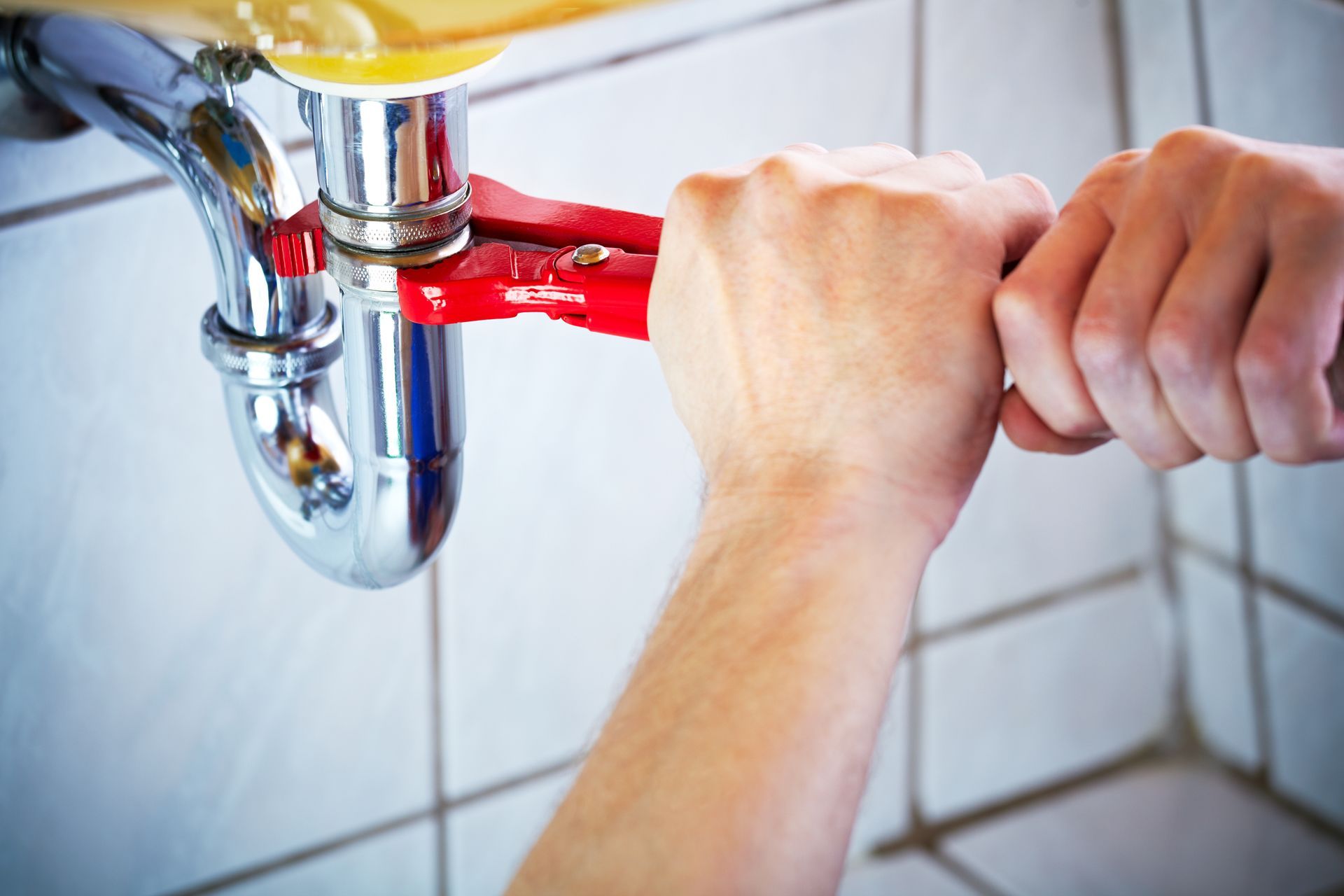
By Admin
•
24 Oct, 2023
Plumbing Issues Plumbing problems usually revolve around one of three things: clogs, leaks, or drips. It pays to be familiar with your plumbing system to minimize the damage caused by plumbing problems and fix minor issues on your own. The most important thing you can do is find the main water shutoff valve and how to turn it off. This is usually either outside your home or in your basement or crawlspace. If you cannot find it or don’t know how to turn it off, contact your utility company and have them show you. If any tools are necessary to turn off your water, keep them handy. Being able to shut your water off at the main valve can be vital to reducing damage to your home if a pipe were to burst. You should also check each plumbing appliance (sinks, toilets, etc.) for their own shutoff valves and verify they work. If the valves fail to turn off the water to the appliance, you should have them fixed by a professional plumber. These valves come in handy when the need arises to repair individual appliances. If an appliance has no valves, you must shut off your water at the main valve to fix it. When it comes to clogs and slow drains, an ounce of prevention is worth a pound of cure. In the tub or shower, invest in an inexpensive hair trap or screen to prevent the majority of hair and soap scum from going down the drain. In the kitchen, don’t pour cooking grease down your drain. It will harden and coat your pipes with a sticky scum that will catch other particles and clog the line. Instead, keep it in a coffee can or milk container and dispose of it with your garbage once it’s cooled. You should also avoid dumping coffee grounds down the drain. They’re notorious for causing clogs. Maintaining your drains every week is also a good idea to keep your pipes clear. One way to do this is to pour a half-cup of salt, a half-cup of baking soda, and a half-cup of vinegar down the drain and follow with two quarts of boiling water. If you do encounter a clog, don’t panic. Clogs and slow drains most commonly occur in areas that can be quickly cleared on your own without the help of a pro (if more than one drain or toilet is affected, you will need to contact a plumber). First, try a plunger. www.repair-home.com/Using_a_Snake has easy-to-follow instructions for the use of a pipe-snake. There is also the option of using chemical clog removers. Be sure to follow the package instructions when using them. Leaks can be slowed or stopped until you can get a plumber out to your home by following the steps in this article: www.ehow.com/how_2329_repair-leaky-pipes.html . Please remember that this is a temporary measure only. Still, it will help prevent water damage until your plumber fixes the problem. Many plumbing repair projects don’t require the help of a professional. If you have the right tools and information, replacing faucets, garbage disposals, sinks, and toilets is all easily accomplished by the do-it-yourselfer. DIYnet.com is an excellent resource for many home repair projects. If you would like a thorough, professional inspection of your plumbing system by an expert, please contact our office. We have the expertise to detect invisible problems to the untrained eye to help you avoid problems before they start. If necessary, we will also provide a full report summarizing our findings and recommended course of action.
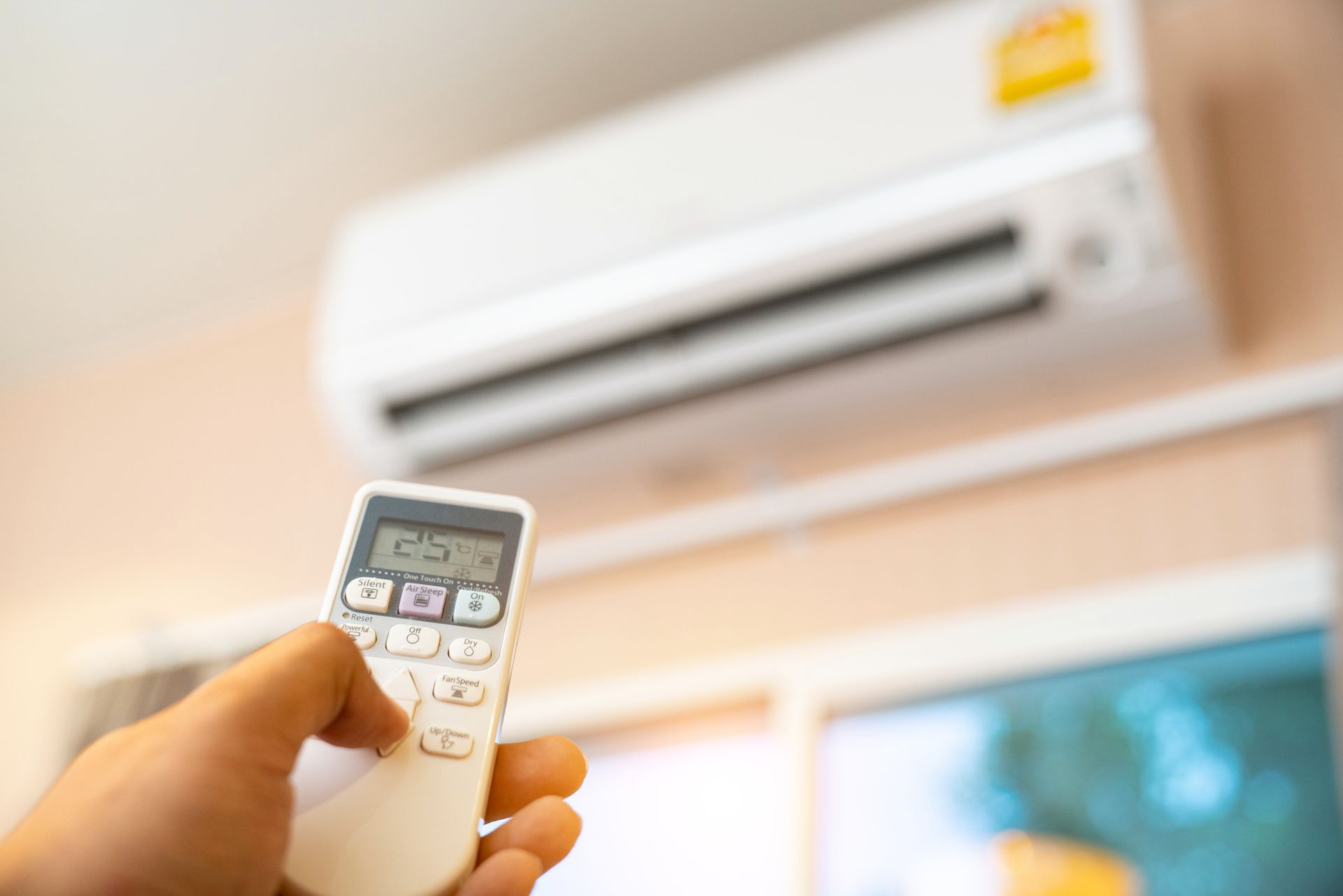
By Admin
•
24 Oct, 2023
HVAC Issues Problems with heating and cooling systems can range from elevated operating costs due to an older, inefficient system to hazardous malfunctions. It is essential to be familiar with your heating and cooling systems and maintain them properly to avoid dangerous conditions or costly repairs. One of the most important things you can do to maintain the efficiency of your heating and cooling systems and the air quality in your home is to ensure that your ducts and filters are cleaned or replaced regularly. Duct cleaning takes the expertise of a professional. If you need a duct cleaning service in your area, this link is a good resource: https://www.nadca.com/zm2/search1.asp. It’s a good idea to also regularly clean your registers and vents between your duct cleaning service’s visits. This can be done easily by cleaning and removing the registers and then vacuuming out the ducts as far as your vacuum hose can reach. There are several easy and inexpensive things you can do yourself to maintain the efficiency of your heating system. If your heating system is a forced air furnace, you should frequently clean or change the filter. If you have a radiator, you must “bleed” it out of trapped air, which would prevent the water from running through the system efficiently. You can do this by opening the bleeding valve until water comes out and then closing it – be careful as the steam and water are scalding. Be sure to have something handy to catch the water. If you have a hot water heating system, clean the boiler by opening the drain valve until the water runs clear. This should be done approximately once a month. You should also do some regular maintenance on your cooling system. Hiring a professional service to give your system a check-up before the hot months begin is a good idea for central air conditioners. This usually involves thoroughly cleaning the air conditioning unit and refilling the coolant if needed. Monthly, you should also check the unit for blockages and remove any vegetation growing around it that could interfere with its proper functioning. You should also clean or change the filter and check the condensate drain at least monthly. For window units, you should clean or replace the filter at least monthly or bi-weekly during the hottest months. You should also check the condensate drain to ensure all moisture drains properly. If your HVAC systems run on natural gas, ensure you know where your gas shut-off valve is in case you need to close it. You should also keep an adjustable wrench handy for this purpose. If you ever smell gas, follow the below steps: Evacuate your home. Once everyone is safely out of the home, shut off the gas supply from the external shut-off valve (this will be located near your gas meter). Call the utility company or emergency service to report the leak. If you would like an expert opinion on the condition of your HVAC systems, please contact us for quotes.

By Admin
•
24 Oct, 2023
Of all the problems you can encounter around the house, roofing problems are by far the sneakiest. Leaks can develop unnoticed for years, causing rot, mold, warping, and other expensive damage. Experts recommend you go into your attic or crawlspace at least once a year after a rainstorm to check for leaks and water damage. Particular attention should be paid to areas where you have flashing (the metal or plastic weather stripping that will be around chimneys, pipes, vents, valleys, dormers, and eves) because this is typically the most likely area to develop leaks. It is also recommended that you safely observe the surface of your roof yearly – during good weather – to look for any loose, missing, eroded, warped, or otherwise damaged shingles and to check the overall condition of your roof. You should also regularly clean rain gutters and downspouts of leaves and other debris, preferably in the fall once the trees are bare. While doing this, check for mineral deposits that could indicate asphalt shingles' erosion. Many people would prefer to avoid inspecting their roofs themselves. Roofs can be pitched at very steep angles and pose quite a challenge to those leery of heights. Inspecting the roof from an attic or crawlspace full of spiders and other creepy inhabitants may not be too attractive either. Another issue is most people need help figuring out what to look for. Leaks can be hard to track – water travels downward, and the damage can be far from the actual leak. Because of this, hiring an expert to inspect the roof for you is something you should consider. We offer full-service, unbiased roof inspections and will provide a detailed report of our findings, complete with recommended maintenance and repair suggestions. Please contact us for quotes.
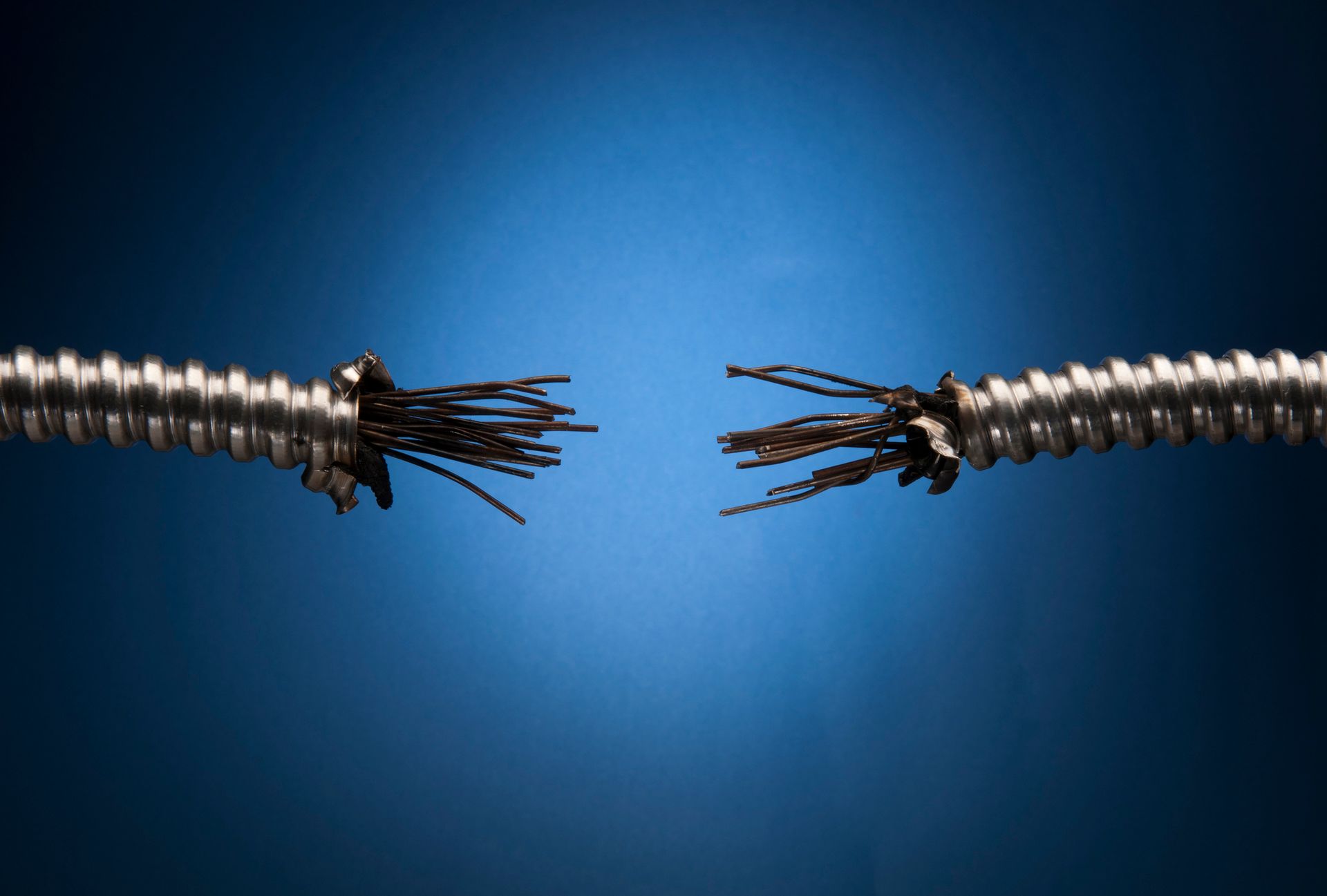
By Admin
•
24 Oct, 2023
Of all the problems you can encounter around the house, roofing problems are by far the sneakiest. Leaks can develop unnoticed for years, causing rot, mold, warping, and other expensive damage. Experts recommend you go into your attic or crawlspace at least once a year after a rainstorm to check for leaks and water damage. Particular attention should be paid to areas where you have flashing (the metal or plastic weather stripping that will be around chimneys, pipes, vents, valleys, dormers, and eves) because this is typically the most likely area to develop leaks. It is also recommended that you safely observe the surface of your roof yearly – during good weather – to look for any loose, missing, eroded, warped, or otherwise damaged shingles and to check the overall condition of your roof. You should also regularly clean rain gutters and downspouts of leaves and other debris, preferably in the fall once the trees are bare. While doing this, check for mineral deposits that could indicate asphalt shingles' erosion. Many people would prefer to avoid inspecting their roofs themselves. Roofs can be pitched at very steep angles and pose quite a challenge to those leery of heights. Inspecting the roof from an attic or crawlspace full of spiders and other creepy inhabitants may not be too attractive either. Another issue is most people need help figuring out what to look for. Leaks can be hard to track – water travels downward, and the damage can be far from the actual leak. Because of this, hiring an expert to inspect the roof for you is something you should consider. We offer full-service, unbiased roof inspections and will provide a detailed report of our findings, complete with recommended maintenance and repair suggestions. Please contact us for quotes.
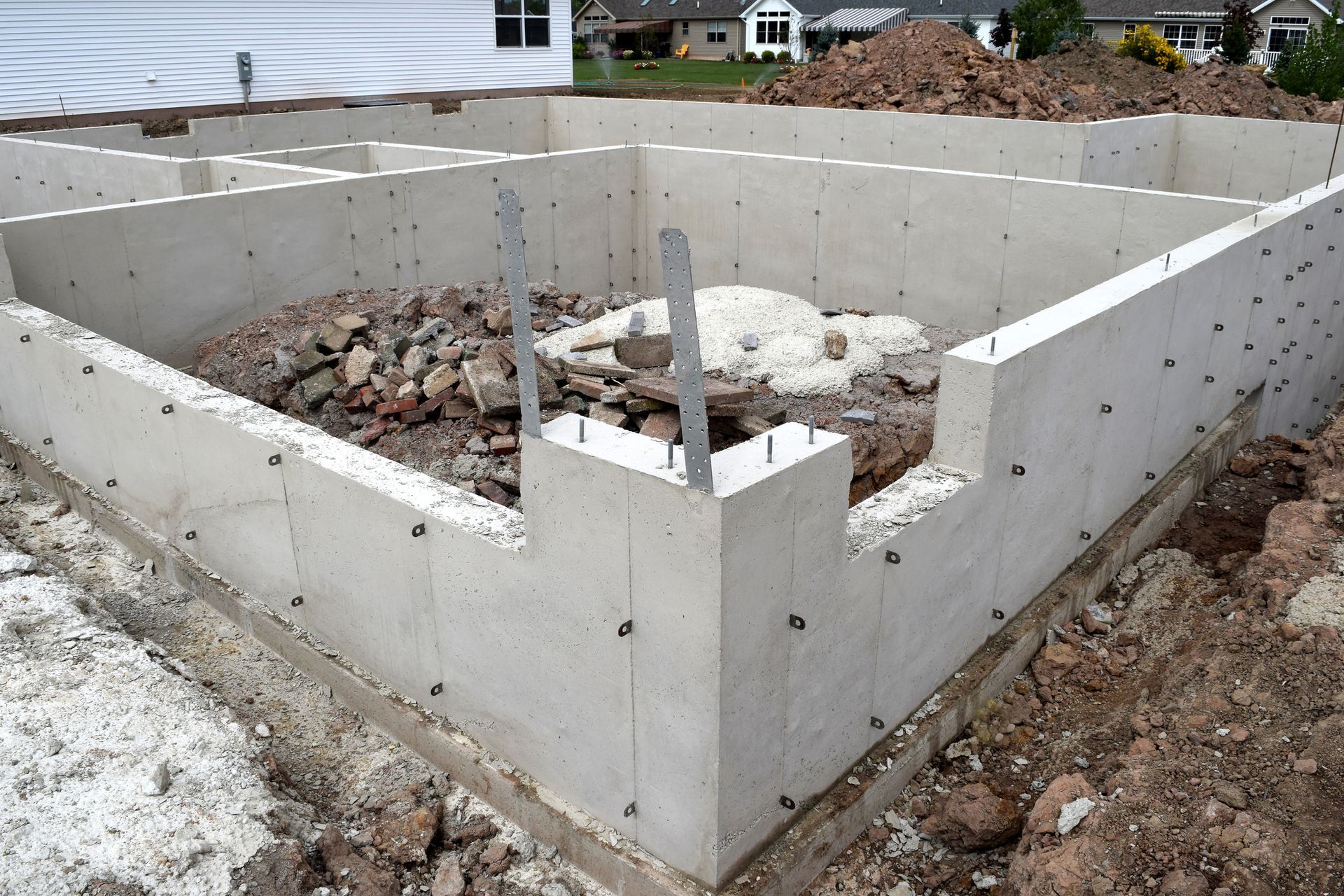
By Admin
•
24 Oct, 2023
Many hairline foundation cracks are usually caused by regular temperature expansions and contractions, differential soil settlements, and the movements of dissimilar building component materials. Suppose an inspection of the exposed exterior areas and the corresponding interior walls and ceilings reveals any visible evidence or damage usually associated with foundation failure. In that case, General Inspection will recommend that further analysis by a qualified foundation repair specialist or a structural engineer be performed before you purchase the home. The average settlement or the subsidence and consolidation process of the soils underlying the foundation slab may require up to 30 years to complete, with most of the consolidation generally occurring within the first few years. Depending upon the composition, the percentage of voids, and the moisture content of the underlying soils, "settlement" may be "dormant" or still "active." Geotechnical (soil) investigations and analysis are required to accurately and ultimately make this determination. They are recommended should this be of concern to the clients. Settlement of your home is a natural occurrence. Most lending institutions, architects, and structural engineers use the general settlement standard greater than 1" in 10' as an unacceptable degree of foundation settlement or point at which foundation failure has occurred. Remember that most slab foundations must still be finished at a perfectly level grade. There is no one correct way to build or repair a house, so opinions may differ on how to or need to repair a foundation. Foundation failure, therefore, becomes a subjective conclusion based on the structural deflection and the experience of the individual observing the structure. The Baton Rouge area primarily comprises expansive clay soils that act like sponges. As they absorb water, they swell; as they lose water, they shrink. Soils tend to dry out (and shrink) during the summer and to absorb water (and swell) during the winter and spring. As the soil under a house shrinks and swells with the seasons, the house and foundation will move up and down. As long as the foundation movement is not significant enough to damage the home and/or foundation, most people do not consider the movement to be a foundation repair problem. Suppose the up and down movement of a house foundation always returns the house foundation to its original level position. In that case, damage to the house and foundation may appear and disappear regularly as the seasons change. Suppose a homeowner wishes to stop seasonal house and foundation damage. In that case, the first action should be following a controlled watering program. By keeping the moisture content of the soil under the house foundation constant, foundation movement can often be stopped. This has been written to assist the homeowner in performing a simple foundation repair preventive maintenance program. A foundation repair preventive maintenance watering program aims to maintain a constant moisture level in the soil under the house and foundation. The best way to water a foundation is to place a soaker hose one to two feet from the foundation's edge. Placing the hose a short distance from the foundation allows the water to soak into the soil evenly. The hose should not be placed against the foundation. When soil has dried and cracked, water can travel along the cracks for several feet in all directions. Suppose the soil around your foundation is dried and cracked. In that case, water placed next to the foundation will run through the cracks and accumulate at the bottom of the grade beam (the thick portion of the foundation under the exterior walls). In some cases, an accumulation of water in the soil at the base of a foundation can cause the soil to lose some of its load-bearing capacity. The house will sink into the ground if the soil loses enough load-bearing capacity. It is necessary to water more during hot, dry weather and less during cold, damp weather. The amount of water required to stabilize a foundation during the summer can be surprisingly large. A single large tree can remove as much as 150 gallons of water, or almost 20 cubic feet, from the soil daily. Shrubs and other plants can also remove large quantities of water. During persistent hot, dry weather, it may be necessary to water a foundation daily. Watering should supply enough water to keep the moisture content in the soil under the foundation constant. If the amount of water applied is only enough to keep the surface damp, the watering program will not work. Obviously, the homeowner is the only one who can weigh the benefits of controlling foundation movement versus the increased size of the water bill.

By Admin
•
24 Oct, 2023
Most problems associated with EIFS or Synthetic Stucco result from improper installation . If moisture gets behind the surface, wall sheathing, studs, and plates can deteriorate while concealed from view. At General Inspection , we are trained in EIFS installation and inspection. We can identify problem areas before serious damage has occurred.
Think you have an issue with your home? Call (225) 933-1089 today to speak with our team!
Visit Us
Baton Rouge, LA
Payment Options







More Info
LSBHI License # 10252
All Inspections and Mold Surveys Performed by Michael Armshaw Certified Master Inspector
LSBHI, InterNACHI, Baton Rouge Realtors Association
Licensed, Insured and Bonded
Content, including images, displayed on this website is protected by copyright laws. Downloading, republication, retransmission or reproduction of content on this website is strictly prohibited. Terms of Use
| Privacy Policy